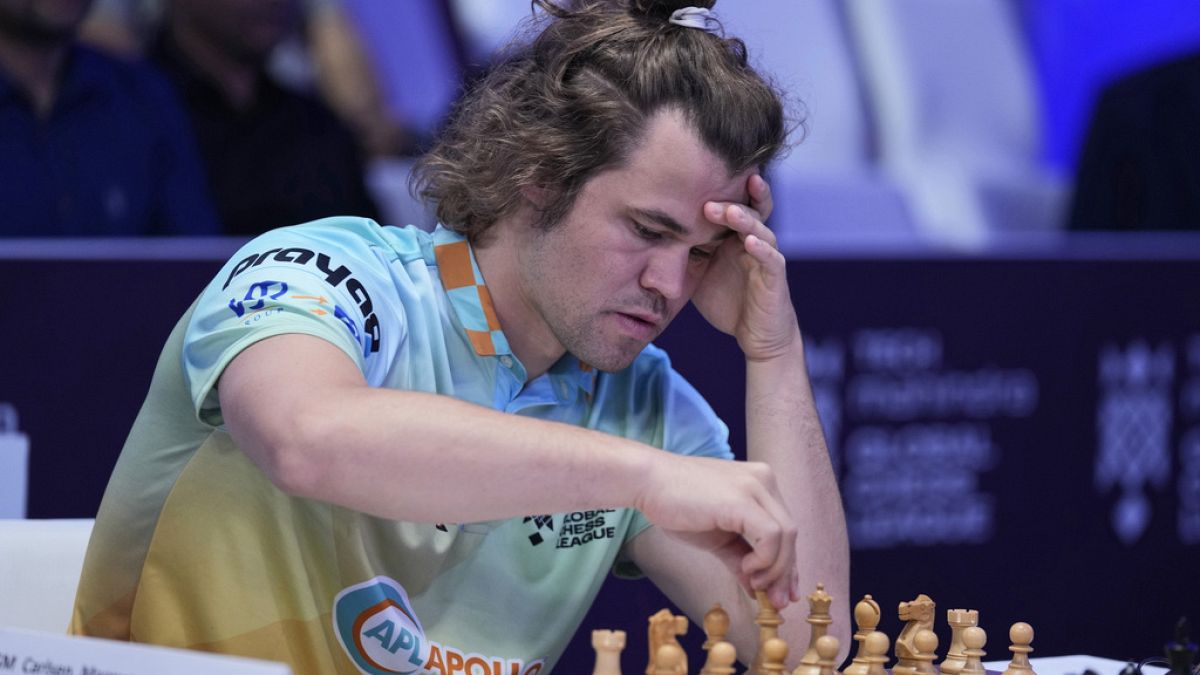Magnus Carlsen recently made headlines by leaving the World Rapid and Blitz Chess Championships in New York after refusing to change out of the jeans he wore to the competitions. The International Chess Federation, in a statement released on Friday, stated that its regulations include a dress code that prohibits participants from wearing jeans at the event. Despite being informed by the Chief Arbiter of the breach and issued a fine of 192 euros, Carlsen declined to change his attire. As a result, he was not paired for round nine and eventually chose to quit the competition altogether.
Carlsen, a 34-year-old Norwegian chess grandmaster, acknowledged the fine but stood his ground on the issue of changing his trousers. In a video from his Take Take Take chess app shared on the social platform X, he explained his stance saying, “I said, ‘I’ll change tomorrow if that’s OK.’ But they said, ‘Well, you have to change now.’ At that point, it became a bit of a matter of principle for me.” The International Chess Federation emphasized that the dress code is in place to ensure professionalism and fairness for all participants, highlighting a similar incident involving Ian Nepomniachtchi who was also fined for breaching the dress code by wearing sports shoes. However, Nepomniachtchi complied with the rules, changed into approved attire, and continued to play in the tournament.
The decision made by Carlsen to stand by his choice of attire despite the consequences sheds light on the importance of principles and personal beliefs in professional settings. While some may argue that rules are rules and should be followed without question, others may see Carlsen’s defiance as a statement on individuality and the freedom to express oneself. The controversy surrounding this incident also brings attention to the significance of dress codes in competitive environments, and the balance between upholding tradition and allowing for personal expression.
As a highly respected figure in the world of chess, Carlsen’s actions have sparked discussions about the role of dress codes in sports and competitions. Critics may view his refusal to comply with the regulations as disrespectful and unprofessional, while supporters may commend him for standing by his principles. The incident serves as a reminder of the power of individual choice and the impact it can have on larger institutions and community standards. Moving forward, it will be interesting to see how this incident influences future discussions on dress codes and personal expression in the world of competitive chess.
In a world where conformity and tradition often dictate behavior, Carlsen’s refusal to change his attire highlights the importance of staying true to oneself even in the face of adversity. By taking a stand on what he believes in, Carlsen has brought attention to the complexities of dress codes, personal expression, and individual autonomy in competitive environments. Whether one agrees with his actions or not, it is clear that Carlsen’s decision has sparked conversations and debates that are essential for promoting understanding and reflection within the chess community and beyond.
Ultimately, the incident involving Magnus Carlsen at the World Rapid and Blitz Chess Championships serves as a thought-provoking example of the intersection between rules, personal beliefs, and professional conduct. While the issue of dress codes may seem trivial on the surface, it raises important questions about the balance between tradition and individual expression in competitive settings. As discussions around this incident continue, it is crucial to consider the implications of rules and regulations on personal autonomy and the values we hold dear.Magnus Carlsen’s stand against the dress code regulations has sparked debates and conversations within the chess community, highlighting the importance of individual autonomy and personal expression in competitive environments. While some may view his actions as defiant and unprofessional, others see it as a statement on the power of personal beliefs and the right to express oneself freely. As the chess world grapples with the aftermath of this incident, it is essential to reflect on the role of rules and regulations in promoting fairness and professionalism while also respecting the diversity of opinions and perspectives within the community.

























